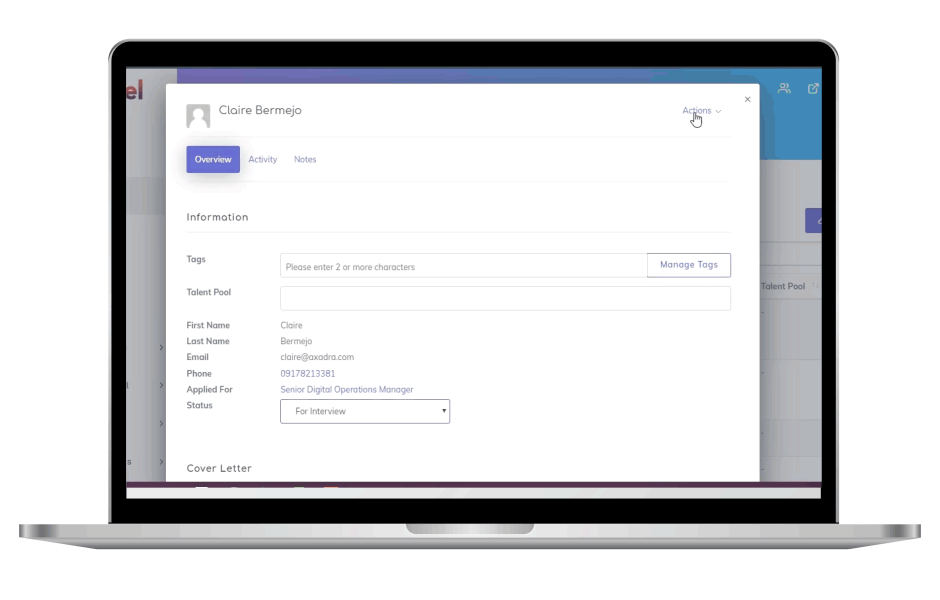Fresh talent is a necessity to maintain the high quality of work within your company. Having a team with skills that are on-demand and a desire to grow and learn will give your company an edge over competitors. For many companies, this means recruiting millennials and Gen Z.
The prospect of hiring younger generations can be a little daunting, especially in workplaces that have a more traditional or conservative culture. Both generations have come to be known as the “job hopping generations,” with many companies wondering how to keep promising talent in their employ. As talent pools continue to grow and expand, more and more potential candidates will be coming from these generations, prompting many companies to re-evaluate their hiring practices and overall company culture.
If you want to understand how to effectively hire and keep both millennials and Gen Z in your workplace, then this article is for you.
Recruiting Millennials vs Gen Z: Who’s Who?
Both millennials and Gen Z have a reputation for being tech-savvy and all-arounders. In fact, the two generations are often interchanged by older individuals. With both generations being so similar, is there really a need to differentiate the two?
The answer is yes. Millennials and Gen Z may often be lumped together but there are small nuances which give them a slight difference. And for hiring managers, being able to identify these differences can be a key factor in recruiting millennials and Gen Z.
Millennials: The Inherent Optimists
Millennials have notoriously been dubbed as the “job hopping generation”, but a closer look at their demographics can reveal a lot more about their psyche.
Born between 1981-1996, this generation was raised during an economic boom but became adults in a very different economic situation. This journey has shaped their outlook and explains why “hustle culture” became quite prevalent among individuals in this age group. Career growth and opportunities to learn are some of the most important factors for millennials, and their jobs reflect that.
Gen Z: The Pragmatic Technologists
On the other hand, Gen Z grew up in a technologically advanced time while experiencing a recession. Both communication and economic aspirations play a huge role in recruiting Gen Z professionals. Just take a look at popular roles among this generation.
An important difference between the two is that Gen Z craves job security. While they’re not immune to switching jobs, a company that is technologically on par and nurturing is more likely to inspire loyalty among their Gen Z employees. Perks, such as remote work and competitive benefits, also rank rather high in their considerations, so if your company offers these then you might have an easier time hiring Gen Z applicants.
Effective Millennial and Gen Z Recruitment Strategies To Try
There are a lot of factors that can affect the decision making process of both millennials and Gen Z. Making sure that you present them with the best conditions, even if it’s just during the recruitment process, puts you in a considerably favorable position. If you find that your company is having difficulty adjusting in terms of hiring practices, then it might be time to reconsider some particular aspects of your workplace.
Try out some of these strategies when hiring millennials and Gen Z and see how these small changes can make impactful differences:
Connect early
If you want to get the best talent, then it’s important to contact them early. Applicants who have skills that are in high demand are more likely to get hired in an instant and you definitely don’t want to be one of the last ones to discover them. This is why it’s important to establish connections with younger generations early–even if you don’t have any open positions.
When it comes to talent acquisition, social media recruitment will be a necessity if you’re recruiting millennials and Gen Z. Again, establishing connection is important–and social media allows you to do that. With a strong social media presence, you can engage and connect with millennials and Gen Z applicants much easier.
Know the difference between the two
An important point to consider when you’re learning how to hire millennials or Gen Z employees is to treat the two with distinction. As we’ve established, the two generations do have a lot in common–but they are not the same. Their priorities, aspirations, and goals could differ and it is up to you to offer something that aligns with these.
For hiring managers, it’s also important to avoid interview bias when interacting with either generation. While you may have preconceived notions about millennials and Gen Z, it is unprofessional and unadvisable to show these biases. In both generations, individuality is of huge importance–so don’t let your biases prevent you from getting to know more about an applicant.
Be tech-savvy
Millennials and Gen Z thrive in the digital world. Growing up in a time when technological advancement was fast meant being immersed in the latest technology. To successfully recruit members of these generations means being able to understand their technology.
This is something that should extend to all aspects of your company. From hiring to operations, it’s important to give both millennials and Gen Z a space that they understand. If your company has been stuck with unautomated processes and outdated technology, then it might be the time to shift as well.
Highlight your company culture
Collaboration, freedom, work-life balance–these are some of the things that younger generations look for in a company. Culture is a large part of why a millennial or Gen Z applicant will accept an offer. If your company culture aligns with their ideals and goals, then these generations are more likely to consider you even with more competitive offers.
Efforts to improve company culture are necessary, especially if you want to recruit and retain both millennial and Gen Z employees. Keep in mind that you don’t have to change everything about your company! However, it is important to actually reflect the culture you market as both generations can be turned off by jarring mismatches.
Streamline your hiring process
If you’re trying to follow millennial and Gen Z recruiting trends, then it’s important to streamline your process. Remember, speed is essential when we talk about hiring the two generations. That’s why it’s important to get rid of unnecessary and confusing steps, as well as unresponsive systems.
When you streamline your process, it’s important to consider everything, from start to finish. To some, this might mean using a career page builder. For others, this could result in restructuring your recruitment process.
Offer growth and opportunities
The most popular misconception about millennials and Gen Z employees is that they have no company loyalty. Studies have shown that the two generations stay with a company for an average of 2 years before switching jobs. This is significantly less, compared to Gen X’s 5 years and Baby Boomers’ 8 years.
But where does this “disloyalty” come from? For both millennials and Gen Z, this comes from the lack of opportunities and growth.
Dubbed as the “job hopping generation”, millennials have unfairly been considered a flight risk by many companies. In reality, millennials in the workforce are simply looking for compelling reasons to stay with a company. Millennials will often gravitate towards companies that offer them bigger opportunities for both growth and compensation.
On the other hand, Gen Z employees are more likely to leave a company that doesn’t provide them an avenue to grow. Unlike millennials, Gen Z look for job security–which means that they are less likely to leave a company. However, that is only when they feel that they have the chance to learn and experience more. This is why companies that are restrictive and don’t spend enough time on skills training and development will find retaining Gen Z employees difficult.
Consider working digital
The pandemic has brought about an era of remote work to another level. It has also impacted how both millennials and Gen Z consider their work options. If you’re not open to having a fully remote work setup, then consider a hybrid one.
In many cases, being able to work remotely is an advantage. You’ll have a larger pool to choose from, especially since many Gen Z candidates are not as concerned about geographical restrictions. A fully remote workplace can be advantageous, especially if your candidates are geographically further away.
Recruiting New Blood
Companies constantly need fresh ideas and innovation in the form of talented employees. As the workforce continues to grow, many hiring managers will face both millennials and Gen Z applicants. Adapting their strategies and techniques is essential in order to get the best match.

















